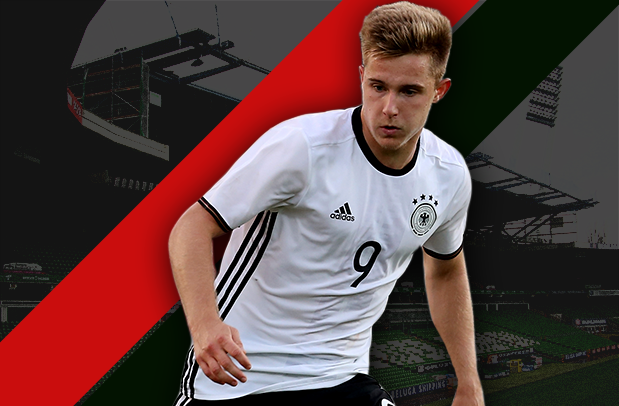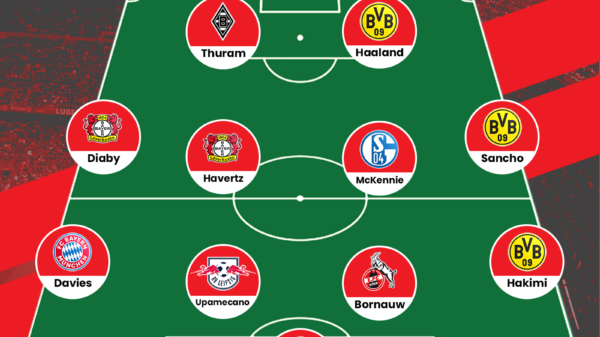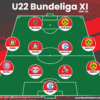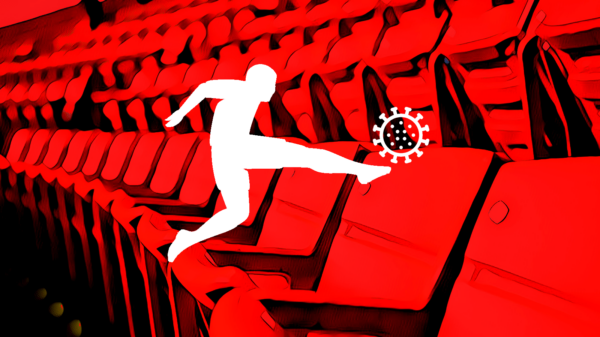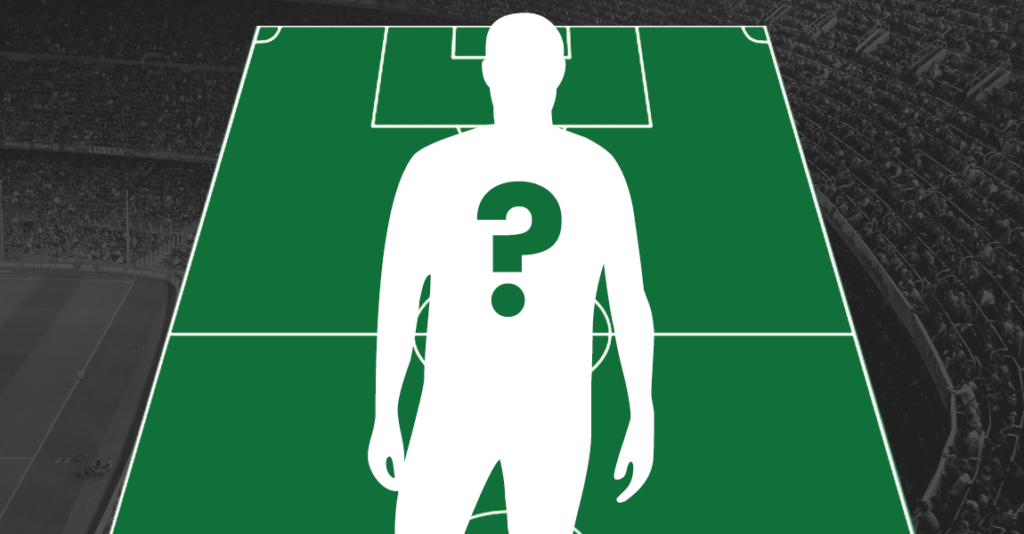Kaustubh Pandey writes a detailed scout report about Johannes Eggestein, the young Germany and Werder Bremen forward.
Unlike countries such as England and Spain, where production of quality youngsters is essentially concentrated in the hands of a few teams, the case of Germany is a stark opposite. Young players, that too quality ones, come through a majority of Bundesliga clubs and not just the big ones, take the likes of Hoffenheim or Freiburg as instances. Its only later that they end up being snapped up bigger clubs across the country and across Europe and reap financial profits for their home teams. But apart from financial profits and advantages, the players remain indebted to their youth clubs forever, despite leaving them behind to greener pastures.
And one of the reasons why Germany won the World Cup of 2014 is the consistent development of players, who came through top-notch academies in Germany and their development hardly remained stagnant. The likes of Bastian Schweinsteiger, Toni Kroos and Thomas Muller are all similar commodities and were key components of the side that achieved the unprecedented. And a number of players, who are coming through the ranks at a lot of clubs in the country, seemingly have the potential to achieve quite the same in the future.
The young Die Mannschaft outfit, which bowed out of the Under-17 World Cup of 2015 in the round of 16 following a defeat to 2-0 defeat to Croatia, does have a certain amount of characters well capable of replicate a bit of those achievements. And Werder Bremen’s Johannes Eggestein is one of those, who is being tipped to do just that.
Who is Johannes Eggestein?
Currently just 18 and already grabbing a fair amount of attention in Germany, Eggestein was born in the city of Hanover in 1998 a year after his elder brother- Maximilian, who too plays for the Werder Bremen, took birth.
Having started his career at local club TSV Schloß Ricklingen, Eggestein moved to another Hanover club called TSV Havelse, where he plied his trade till 2013. Eggestein’s father Karl Eggestein, who himself has been a professional footballer, represented Havelse for ten years till 1982 to 1992.
The move to Werder Bremen came in 2013 and young Johannes began appearing for the Bremen Under 17 outfit from then on. He made 26 appearances for the Under 17s side that season, racking up a more than impressive tally of 19 goals on the way.
Next season, his tally and scoring rate increased as Eggestein found the back of the net 22 times in 25 appearances for the Under 17s side, earning him a call-up from the Bremen Under 19s side. In just two showings, Eggestein scored as many as six times, putting the ball past the Dynamo Dresden Under 19s goalkeeper five times in a single game.

Johannes Eggestein of Germany runs with the ball during the international friendly match between U19 Germany and U19 Netherlands. (Photo by Matthias Kern/Bongarts/Getty Images)
His outstanding performances earned him a call-up for the Under-17 World Cup, which was scheduled to take place in Germany itself. Although, Germany’s loss to Croatia saw them exit the tournament, but Eggestein got his goal-scoring run going during that tournament too as his tally of four goals in just as many games proved that.
Last season, Eggestein’s goal-scoring ratio increased even more. In 26 league appearances for the Under 19s side, Eggestein scored an astonishing 33 times. And in all competitions, the forward scored 36 times in 33 appearances.
This season, Eggestein’s rise to prominence has been awarded with an opportunity in the first-team after he has handed a first-team bow in the DFB Pokal by the now-sacked manager Viktor Skrypnyk. For Bremen II in the 3. Liga, Eggestein has scored once in five games at a time when the side has scored only twice in their five outings so far.
What is his Style of Play?
A striker by trade, but also capable of playing on the flanks, Eggestein has played up top for most of his career. A threatening outlet on the counter-attack and even in possession, the 18-year-old has earned his name as being a rather feared commodity in his age-group and even in the senior ranks.
Usually, the forwards who score as many goals as Eggestein has over the past three or four years happen to be those fox-in-the-box strikers, who have the eye for the goal and aren’t the paciest of players on the pitch. But Eggestein is a direct opposite of those kind of players. He’s got the pace and guile to go past players after taking them on with some precision.
What are his Strengths?
As mentioned above, his quickness is always a scary part of the diverse repertoire that he possesses. And defenders always fear strikers who run at them and never give them a moment of peace, by unleashing their directness and fearsome pace on them.
His balance on the ball is always threatening to the opposition, especially to those who don’t expect to take them on with his slender, yet quick body shape. His ambi-dexterous nature of dribbling and shooting is another ability in his armoury that defenders are really scared of. They really don’t have an idea about where he can shift the ball to, shoot with it, turn with on the ball or dribble with.
His slightly mobile centre of balance and gravity is another commodity that allows him to skip past defenders with appreciable agility.

Ole Kittner of Muenster challenges Johannes Eggestein of Bremen II. (Photo by Martin Stoever/Bongarts/Getty Images)
Eggestein’s movement off the ball is tough to track down too. He never stands still, be it up front or in wide positions. Quite continuously, the German keeps switching positions with players around him and floats across and in front of the opposition back four. His touches on the ball show exactly that.
It also shows the reliance that his side has placed on the youngster and how much of the ball he tends to see to pull off his bit. It’s due to his pace that he drops deep to initiate counter-attacks and add more pace to the break.
In the current footballing scenario, in which the counter-attacking style is slowly overshadowing the possession brand of the game, the need for centre-forwards who are jack-of-all-trades-but-masters-of-none is quickly accentuating. And it’s only a matter of time before traditional target-men begin to become endangered and later, extinct. In Eggestein’s case, there’s no risk of that happening.
What are his Weaknesses?
One weakness in Eggestein’s play is lack of physicality. The youngster may be tall, but his weight is something that makes him a rather frail player to hold onto the ball. He wins only 30 percent of his headers per game, while he wins only 33 percent of his tackles.
Despite that though, Eggestein has decent hold and is reliable with his back to goal, which allows others to enter play and get at the end of counter-attacks with him. His contribution to the build-up is efficient too, as Eggestein plays 1.6 key passes per game, which is again reflective of his complete nature up front.
Read all our Scout Reports here.
- Interview: Abneet Bharti on Indian footballers abroad - October 3, 2018
- Scout Report: Nicolo Barella | Cagliari’s Complete Midfielder - October 16, 2017
- Tales of a Football Scout: Giulio D’Alessandro - October 5, 2017




















































